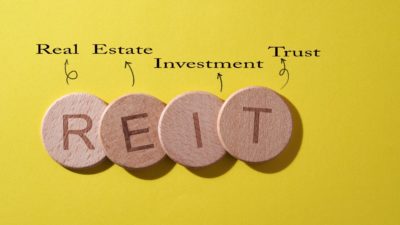The “Steady Eddie” defensive and consumer staple stocks have been selling off of late, as most investors look to reopening plays in an attempt to maximize their upside on the other side of this pandemic. While the rotation out of safety and into at-risk assets could continue to be a major theme this year, those looking for value ought to think about preparing for a market selloff with a handful of cheap stocks that have been on the receiving end solely because of the defensive nature of their businesses.
Sure, staples and defensives provide the least amount of upside in an economic recovery. While there is light at the end of the tunnel in the form of numerous effective COVID-19 vaccines, it’s still tough to tell just how far away that light really is.
The pandemic’s end could be a few months away, as many optimists expect, or it could be a year or more if negative surprises, most notably COVID-19 mutations or an increase in anti-vaccine sentiment, were to cause the pandemic to drag into 2022.
Don’t discount the occurrence of a 2021 market sell-off
Even if the vaccine rollout goes smoothly and COVID-19 is conquered at some point in the second half, I still think the valuations in the following battered defensives are so depressed such that they’ll be in a spot to outperform despite their industry headwinds.
Without further ado, consider shares of Alimentation Couche-Tard (TSX:ATD.B) and Emera (TSX:EMA), two wonderful businesses that have been put in the penalty box in recent months amid the rising appetite for risk-on assets at the expense of defensives. Both names are compelling buys on the dip for those who seek deep value in this expensive market.
A defensive growth gem built to hold-up in a market sell-off
Couche-Tard is a wonderful earnings grower that held its own remarkably well amid the worst of this pandemic-induced market sell-off. The firm’s fresh food rollout could continue to enhance margins and same-store sales growth (SSSG) for years to come. Such margin-boosting efforts, I believe, could stand to more than offset electric vehicle (EV) worries that the bears have been overplaying of late.
At under 13.3 times trailing earnings, Couche is a ridiculously cheap defensive growth stock that looks overdue for a re-valuation to the upside once the pandemic ends. While Couche has been a pandemic-resilient play, the COVID-19 impact has also weighed quite heavily on recent results. As people work and shop from home to avoid contracting the horrific novel coronavirus, Couche’s fuel sales took a hit to the chin and SSSG numbers, I believe, were suppressed significantly.
Once the pandemic ends and people hit the roads again, I expect Couche stock will be off to the races again as fuel demand returns to normalized levels. Moreover, with enough cash and credit to scoop up an elephant-sized acquisition, I wouldn’t bet against the name, even though staples and defensives are now viewed as the “unsexy” plays, as the announcement of a major deal could send shares surging.
A battered bond proxy that’s severely undervalued
Emera is a terrific utility that’s seen its shares take a beating in recent months, as investors looked rotated out of defensives and into the higher-upside reopening plays. Emera is a top-tier utility that’s been gravitating towards regulated assets in recent years, which has led to a lower volatility, higher quality of earnings.
With an ambitious three-year capital investment plan that could lead to steady appreciation over the long haul, I think investors would be wise to start accumulating shares on recent weakness before the rotation out of defensives exhausts itself and earnings start dictating the trajectory of stock prices once again.
With a 0.2 beta and a 5% yield, Emera is a compelling option for those fed up with the unrewarding fixed-income debt securities.
At 14.8 times earnings, EMA stock is just too cheap to ignore and would encourage contrarians worried about a 2021 market selloff to accumulate shares, as they’ll likely hold up far better than most other bid-up stocks that are likely to lead the next downturn.








